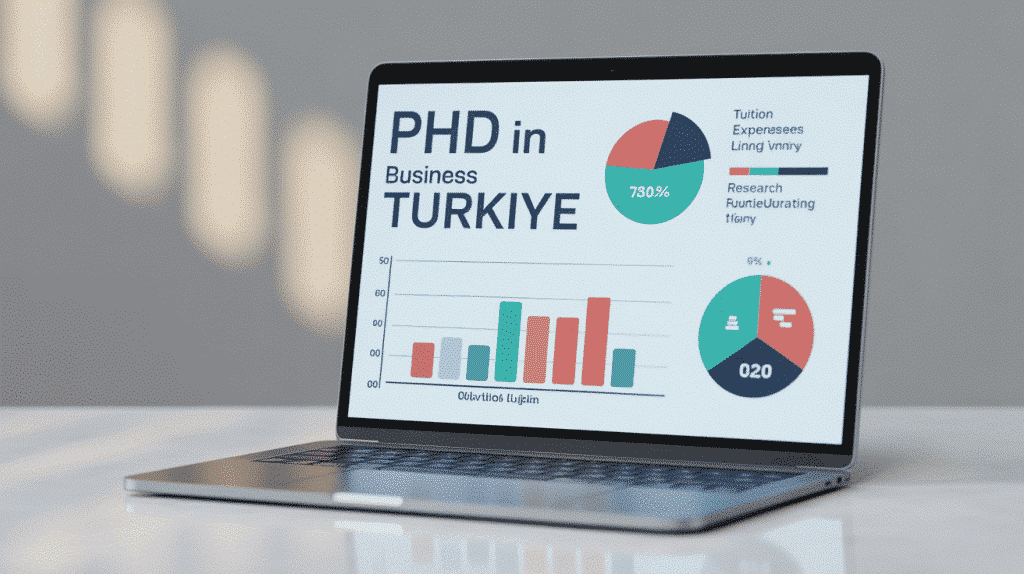Cost Breakdown for a PhD Degree in Business in Turkiye
Tuition Fees
Tuition fees for PhD programs in Business in Turkiye can vary significantly depending on whether students choose to enroll in a public or private institution and the language of instruction. Here is a detailed breakdown:
- Public Universities: Tuition fees for international students typically range from 15,000 TL ($500) to 25,000 TL ($800) per year. Institutions such as Yeditepe University and Marmara University are examples where fees fall within this range.
- Private Universities: For private institutions, the annual fees range between 20,000 TL ($700) and 40,000 TL ($1,400). Universities like Aydin University, known for its robust academic programs, often fall into this category.
- Average Costs: The overall average tuition fee for a complete PhD program in Business in Turkiye is approximately $2,986. However, it’s important to note that specific costs can vary based on the chosen university and program specifics.
Funding & Scholarships
The financial burden of pursuing a PhD can be alleviated through scholarships and funding opportunities, especially at leading institutions:
- Fully Funded Programs: Some universities, including the renowned Koç University, offer fully funded PhD positions. These include a tuition waiver, a substantial monthly stipend (such as 6,000 TL) for living expenses, and additional perks like free accommodation, health insurance, and meal cards.
- Other Scholarships: Numerous top-tier universities provide scholarship options covering both tuition and living costs, designed to attract promising international candidates. This opens a path for students to pursue their doctoral studies without incurring heavy debts.
Living Costs
While tuition represents a significant part of the overall educational expenses, living costs in Turkiye are relatively affordable compared to many Western countries:
- Monthly Living Expenses: Students can expect to spend between 400 to 600 EUR/month, which includes accommodation, food, transportation, and personal expenses.
- Affordable Accommodation: Options for student housing are widely available near universities, and many institutions provide on-campus accommodation that can significantly help manage costs.
Summary Table: Typical Annual Costs
| Cost Area | Typical Range (per year) | Notes |
|---|---|---|
| Tuition (Public Univ.) | 15,000 – 25,000 TL ($500–$800) | May vary by university and program. |
| Tuition (Private Univ.) | 20,000 – 40,000 TL ($700–$1,400) | Higher for English-taught programs. |
| Tuition (Average, All) | ~$2,986 (total program) | Approximate, varies by institution. |
| Living Expenses | 400–600 EUR/month | Includes all essential costs. |
| Scholarships | Full tuition + stipend (select univ.) | Available at Koç University and similar institutions. |
Additional Considerations
It is essential for prospective PhD candidates to keep various factors in mind while considering their options:
- Public vs. Private Universities: Generally, tuition fees tend to be lower in public universities. However, private universities often provide better facilities and English-language programs, which may justify the higher costs.
- Competition for Funding: While fully funded positions exist, they are highly competitive, particularly at prestigious institutions like Koç University. Therefore, applicants should prepare their profiles accordingly, emphasizing their academic qualifications and research proposals.
Conclusion
In summary, pursuing a PhD in Business in Turkiye represents a cost-effective option daily compared to many other countries. The range of both affordable and fully funded programs available ensures that international students have viable pathways to obtain their degrees. Fees vary according to the chosen university and program language, but students will also find living costs to be reasonable by European standards.
Take the Next Step with Study in Turkiye
Explore further to find the options that best fit your academic and professional goals.

